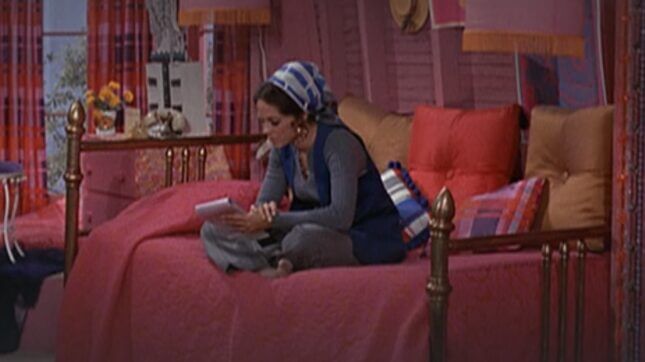
Screenshot: Hulu
In the early ’90s, Nick at Night played hours of Mary Tyler Moore reruns each evening, which I looked forward to throughout my childhood with the fervor most kids saved for Saturday morning cartoons. Long before I understood the jokes, I understood the premise—Mary had done something incredibly brave in the pilot. She’d foregone the life she’d been told she should want—marriage, kids, a yard—and chosen dates, a newsroom, and a studio apartment instead. However, I somehow missed the fact that when Mary got to that studio apartment, there was already someone in it. Valerie Harper’s Rhoda, the wisecracking sidekick who was already living the independent life Mary was trying for . In the pilot, Mary takes Rhoda’s apartment and becomes the star of the series.
It wasn’t until years later, during the fight scene in Romy in Michelle’s High School Reunion, when the two female leads argue over which of them is Mary and which of them is Rhoda that I realized there were two central female figures to the story. The fact that it was possible to be “the Rhoda” had never even occurred to me.
“I’m the Mary,” Michelle’s character screams at Romy’s in the movie. Romy is horrified.
-

-

-

-

-

-

-

-

-

-

-

-

-

-

-

-

-

-

-

-

-

-

-

-

-

-

-

-

-

-

-

-

-

-

-

-

-

-

-

-








































